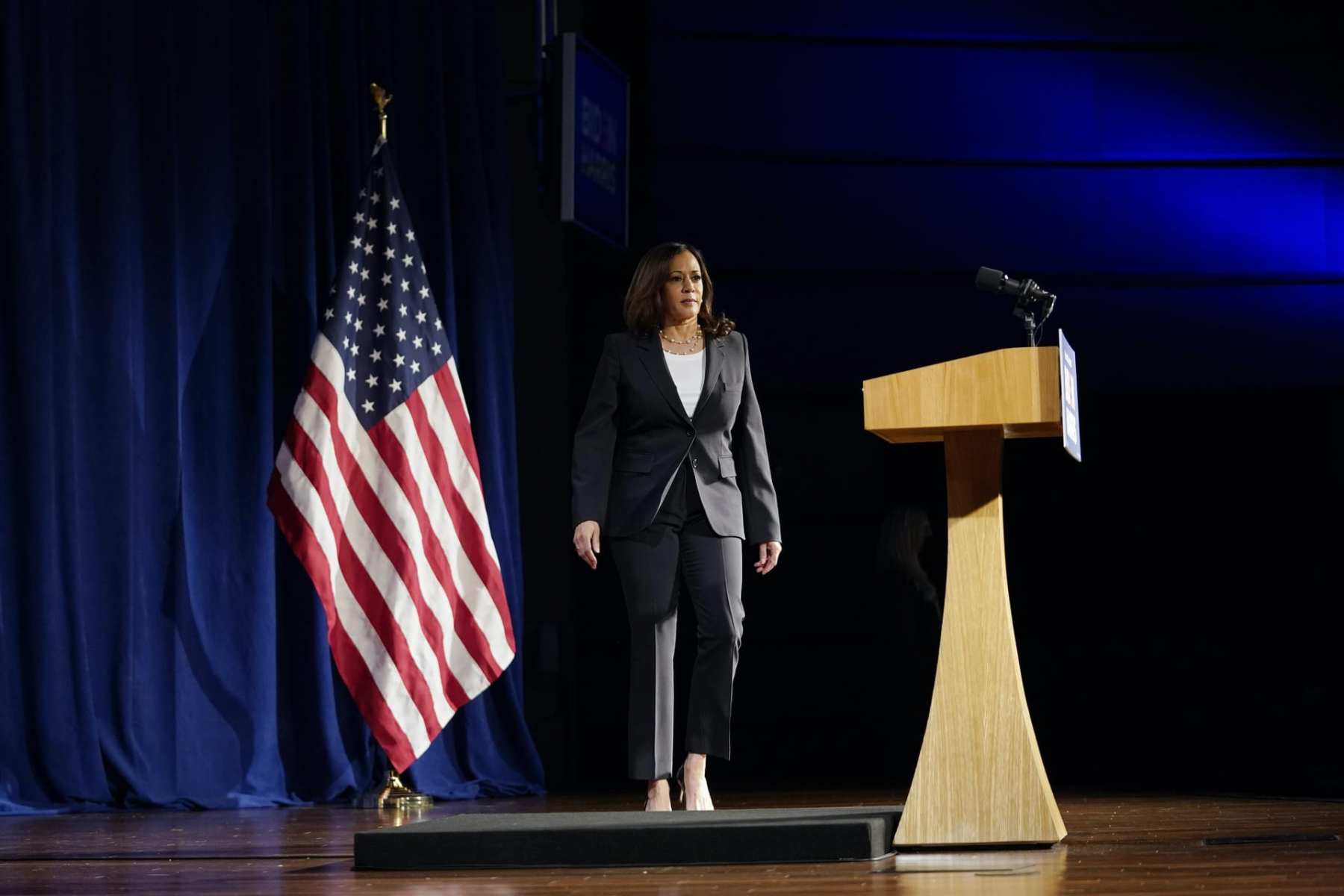Sayu Bhojwani was glad that former Vice President Joe Biden chose a woman of color to be his running mate. But it wasn’t until Sen. Kamala Harris’s formal acceptance speech that Bhojwani realized the full impact of Harris’s presence on the presidential ticket.
“This idea that only White men can serve as president and represent even the most diverse districts, but Black women and minority women can only represent Black and minority women, is problematic,” said Bhojwani, the founder and president of New American Leaders, New York City’s first Commissioner of Immigrant Affairs and the founder of South Asian Youth Action. “The nomination of Kamala is a signal, an opening to the possibility that any of us who consider ourselves American can run for the highest office of the land.”
Prominent Black activists and donors predicted that Harris, the first Black woman and first South Asian on a major party ticket, will help generate new excitement among Black voters for Joe Biden. That enthusiasm is also anticipated for the South Asian community, Bhojwani said.
“There’s more of a likelihood to organize voters in the Indian American community and mobilize unreliable voters who might not have turned out at the polls,” Bhojwani said. “There’s more excitement about the ticket because Kamala is there. I hear this across the board.”
Asian Americans are the fastest-growing racial ethnic group of the U.S. electorate, according to the Pew Research Center, and up to one million Indian Americans — the second-largest immigrant group after Mexicans — are expected to cast a ballot in November, according to Bhojwani.
About three-fourths of Asian American women said they had negative feelings about the way the country was going and voted for a Democratic candidate in 2018, according to a study conducted by SKDKnickerbocker, a political consulting firm that typically works for Democratic politicians.
Despite the friendly relationship between Indian Prime Minister Narendra Modi and President Donald Trump, most Indian Americans continue to vote blue alongside other immigrant groups. More than half of Indian Americans said they had a favorable opinion of Harris, according to the Asian American Voters Survey. Only 16 percent said they had an unfavorable opinion, 10 percent had no opinion and 20 percent had never heard of her.
Still, some progressives are more cautious with their support given the senator’s “tough on crime” record as a district attorney and attorney general in California. However, most Indian Americans are “thrilled,” especially at a time when Asian Americans have felt under attack because of the coronavirus pandemic, Bhojwani added.
South Asian women said their biggest priorities were passing common sense gun laws, ensuring access to clean water and ensuring access to affordable health care for all, according to the SKDKnickerbocker study, which included thousands of interviews with women of color across the United States. Democratic women as a whole were most interested in ending racial and ethnic discrimination and ensuring everyone has access to affordable health care, including those with pre-existing conditions.
During her presidential campaign, Harris said she would sign an executive order mandating background checks for people looking to purchase firearms, call for more stringent regulation of gun manufacturers and restrict domestic abusers from purchasing guns. She also released a health care plan that guaranteed coverage to all Americans while still allowing private insurers to remain.
Last month, Harris spoke of her immigrant parents — her mother from India and her father from Jamaica — in her speech formally accepting the vice presidential nomination.
“My mother instilled in my sister, Maya, and me, the values that would chart the course of our lives,” Harris said. “She raised us to be proud, strong Black women. And she raised us to know and be proud of our Indian heritage.”
The senator’s story, familiar to other second generation immigrants and multiracial Americans, was an opening for immigrant women, women of color and others who have felt marginalized by the political process to “see their potential as leaders,” Bhojwani said.
At a virtual event organized by South Asians for Biden on August 29, Harris encouraged South Asian women in an audio message to get involved in their community and run for office.
“To all the young women who are watching this,” Harris said. “I want you to know that leadership begins the day you are born. You are never too young or too old to be a leader.”
The vice presidential nominee has sparked difficult conversations about anti-Blackness in the South Asian community. Some argued that Harris should be celebrated for her Indian heritage without erasing her Blackness and perpetuating the model minority myth — the belief that Asian Americans are smarter or more successful than other minority groups.
“People are seeing the part of her they want to see,” Bhojwani said. “Black women are focused on her Blackness. Jamaicans and people from Caribbean countries are focused on that, and Indian Americans are much more focused on her Indian background.”
Neil Makhija, executive director of the Indian American Impact Fund, the leading Indian American advocacy organization, said this milestone can be celebrated by immigrant communities of all backgrounds, particularly after four years of “anti-immigrant rhetoric” from the Trump administration.
“Kamala’s story is the American story,” Makhija said. “Her acceptance of the vice presidential nomination is a quantum leap forward for Indian Americans, showing that we are taking our place in American history books.”






